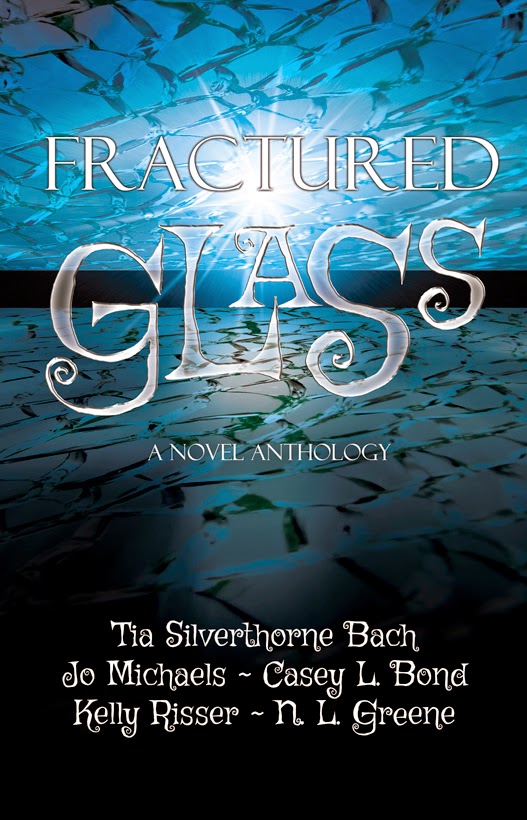
Happy Thursday, good people of the blogosphere! I missed my post yesterday! But, it's all good because I'm caught up with work and back to one hundred percent. Kids are back in school, there's no snow days causing my internet to malfunction (you wouldn't believe how slow it is when the whole neighborhood is home and online!), and I'm back in my office after being run out by the cold. So nice! Anyway, today we're gonna talk about the different kinds of editors and how to decide which one is right for you. So, grab your pens and notebooks and let's get going!
You've written a novel! Yay! Good for you. Now you have this manuscript you don't know what to do with. Well, first things first. You need to do at least four rounds of edits on it yourself. Start by following the steps listed
here and the tips on what to look for
here. Once you're done with that, then you'll be ready to start looking for an editor. But there are so many to choose from. Hopefully, this list will help you choose the right kind for your novel. Heck, you may think you need more than one. Allow me to open your eyes to a fabulous secret! But, that's on down the page. Keep reading!
First up, we have the Developmental Editor.
These guys will check your plot, structure, and flow. They'll make sure you don't have holes in your story and ensure your facts are kept straight. Yeah, they're the ones doing all the research and making copious notes on long, yellow legal pads. They're the right choice if you aren't sure about your novel's storyline, character building, or facts.
Next, I give you the Beta Reader.
These folks are fans of your genre and know what they're looking for in a story. Giving them a questionnaire to answer will help them give you much needed feedback. Commonly, a beta reader is used before you go through a ton of editing, but huge errors will have them complaining that you need to write your story better.
On to the Copy Editor.
These folks check facts, grammar, punctuation, and spelling. They do exactly what their title implies: edit the copy. They won't be looking for what the Developmental Editor looks for. There will be no plot, storyline, or character development checking. They live and breathe the written line.
Now, the Proofreader.
Your proofreader is NOT your editor. They exist to find those little, niggling errors missed by your editor (and yourself). Their whole purpose in life is to make sure your copy is clean and error free after the editing is done. It shouldn't take them as long as it did your editor because they should be able to skim your work to find what was missed.
Next up is the Content Editor.
They live and breathe plot, characters, voice, and setting. These folks don't give a hoot about your grammar, punctuation, spelling, or otherwise. All they care about is the story and making sure you aren't jumping tenses, head-hopping, or meandering off the storyline.

Bet you're freaking out right about now, huh? I suppose you can see how you could need more than one of these folks for your novel and how it would behoove you to have them all in your corner. Well, that leads me to the last (but certainly not least) type of editor on the list. This is the fabulous secret I mentioned earlier. Your secret weapon.
I give you the Line Editor.
These folks do it all. They check facts, grammar, punctuation, POV, plot, characterization, flow, tension, storyline, word count, redundancy, tenses, and every other manner of novel content. It should take them a long time to edit your novel. They don't play around and a lot of writers become dismayed by the amount of feedback given by a Line Editor.
Line Editors will cost you a little bit more. But, that's understandable, right? They're a one-stop shop. This is the service we provide at
INDIE Books Gone Wild. We check it all. Your MS will have so many comments, you'll think you died and went to heaven. Plus, we hire one of our own to do your proofread after your edits are complete (yeah, it's included in the cost of editing). That's just good business.
Which one do you need? I'm sure by now you're foaming at the mouth. You already know.
Indie authors should expect to use a Line Editor and then a Proofreader. ***
Warning! If your proofreader gets your MS and it's obvious it hasn't been edited, they'll send it back to you (and will have every right to do so). So be sure you've used an Editor before you contact a Proofreader.***
Most importantly, be sure you know about your editor; no matter what kind you use. Vet them. Do the work to find out if they're worth it. Don't get snowed. Refer to
Monday's post and
Tuesday's post to know what to ask, what to expect, and what to look for in your contract. This is SO important. I won't take it personally if you don't use IBGW. I just want you to be careful and know what you're getting into.
I can't stress it enough.
Watch your back because you're all you have. There's no big publishing house that's gonna do it for you unless you're traditionally published.
Questions? Comments? Pop them in below and I'll answer everything I can. If you have an editor you'd like vetted, feel free to shoot me an e-mail and I'll do everything in my power to check them out for you. Let's not use the comments section for that, okay?
Well, that's all for today, folks! Until next time, WRITE ON!
Jo
 WRITING TIPS
WRITING TIPS






